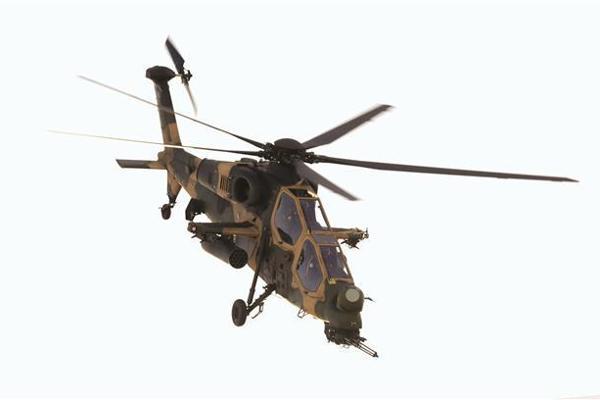Merrill Lynch refuses to serve Turkish defense firm
ERDAL SAĞLAM ANKARA - Hürriyet


Fifteen percent of Aselsan has so far been offered to the public, and the company has been talking with several international consultancy firms ahead of its second public offering, including Merrill Lynch. Hürriyet photo
U.S.-based financial management and advisory company Merrill Lynch has refused Turkish defense firm Aselsan’s request for it to advise and underwrite Aselsan’s second public offering, citing the missile deal inked by Turkey with a Chinese company currently under U.S. sanctions.“If it is possible that you will work with the Chinese company, CPMIEC, we would not work with you,” said Merrill Lynch in a letter sent to Aselsan.
Western reactions appear to be increasing after Turkey’s selection of the Chinese firm to co-produce a long-range air and missile defense system. The U.S.-based Merrill Lynch cited the decision as a reason in itself to deny Aselsan’s request to work with it in Aselsan’s second public offering.
Questioned by daily Hürriyet, Merrill Lynch confirmed that it had refused Aselsan’s offer due to Turkey’s missile deal with China, but declined to give further details of the letter claimed to have been sent to Aselsan.
CPMIEC is under U.S. sanctions for violations of the Iran, North Korea and Syria Nonproliferation Act. Merrill Lynch reminded that CPMIEC was on the U.S.’s blacklist.
Fifteen percent of Aselsan has so far been offered to the public, and the company has been talking with several international consultancy firms ahead of its second public offering, including Merrill Lynch. The details of the public offering of Aselsan, with a market cap of 4.2 billion Turkish Liras, will be elaborated with an international advisory and underwriting firm, such as Merrill Lynch.
According to sources, Merrill Lynch prepared the letter in coordination with the U.S. administration, after Washington expressed “serious concerns” over Turkey’s missile decision.
Whether Aselsan will be able to find a reputable advisory firm and underwriter for its planned public offering is now a big question, as most such firms are Western.
Difficult times ahead for Turkish defense firms
Turkish defense firms look set to face several difficulties in the future due to the deal with China.
Sevil Erkuş reported for the Hürriyet Daily News on Nov. 4 that the U.S. was examining the possible legal outcomes of Turkey’s deal with the sanctioned Chinese company.
These concerns were high on the agenda of Undersecretary of Defense for Policy Jim Miller, who held talks at the end of October with representatives from the Turkish Defense and Foreign Ministries, as well as the General Staff.
In his meetings in Ankara, Miller discussed possible problems that may arise if the government decides to enter into a contract with a U.S.-sanctioned company, stressing that the Chinese system would not be interoperable with NATO systems or collective defense capabilities, Erkuş reported.
Miller also mentioned the possibility of a Turkish deal with a U.S.-sanctioned company hampering ongoing and upcoming contracts involving the joint manufacture of U.S. military components in Turkey, due to legal restrictions.
The U.S. government has been examining what legal ramifications may arise from joint production with Turkish defense companies such as Aselsan, if the latter enters into joint production with a sanctioned Chinese company and shares its facilities.
